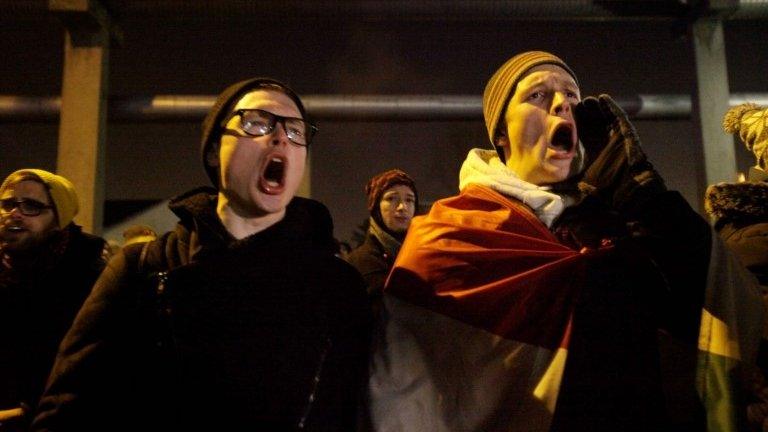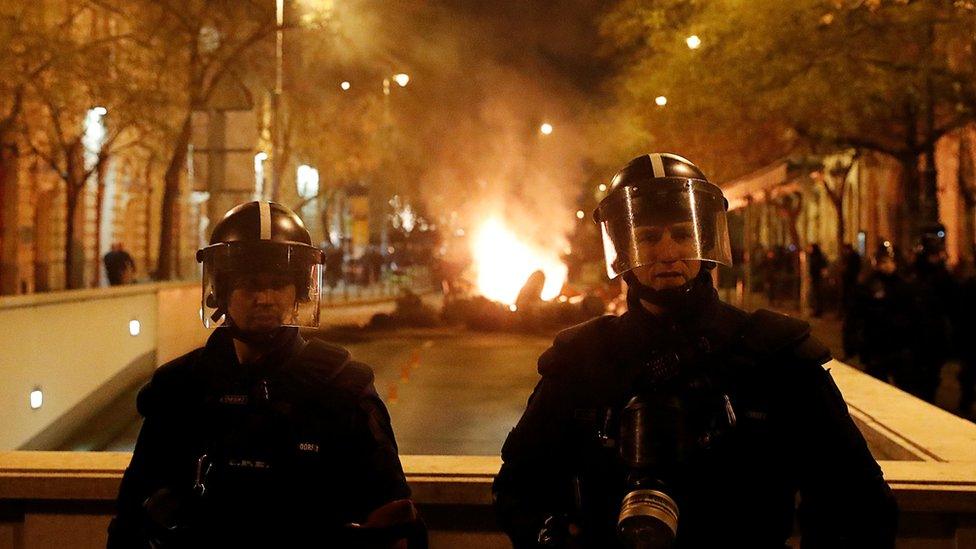Fresh Hungary 'slave law' protests in Budapest
- Published
Hungary: Anti-Orban "slave law" protests explained
Thousands of people have joined fresh protests in Hungary against a new so-called "slave law" that nearly doubles how much overtime employees can work.
The protesters marched to the office of President Janos Ader, angry that he signed the legislation.
Prime Minister Victor Orban says it gets rid of "silly rules" so that those who want to earn more can work more.
The new law boosts the overtime employers can demand from 250 to 400 hours a year.
Meanwhile payment for this overtime can be delayed by up to three years.
Trade unions are opposing the reform and have threatened to organise a general strike, AFP reported.
Earlier the leader of the left-wing opposition MSZP party Bertalan Toth called for the protests to continue.
"We will target those that the Fidesz regime caters to with their laws," he said.
Local councils in the city of Szeged and the northern town of Salgotarjan have passed resolutions vowing not to implement the new law.
Some of the protesters are also angry at another law authorising new courts that they say could be politically manipulated.
Mr Orban's Fidesz party has said protests are the work of foreign mercenaries paid by Hungarian-born US billionaire George Soros.
Mr Soros denies this and says the Hungarian authorities are using him as a scapegoat.

Budapest has seen repeated protests over the "slave law"
Friday's march was led by the spoof Two-Tailed Dog Party (MKKP) party, which was launched more than a decade ago as a joke but has since grown in importance and uses humour to deal with political issues.
"I have come to rejoice over the government's policies," 28-year-old Gergo Gocza told Reuters, holding a sign saying "A Sign".
Another protester held a placard saying: "Happy boss, gloomy Sunday".
Until now Mr Orban's policies have typically enjoyed widespread support, despite repeated condemnation from other EU nations.
In elections earlier this year, Fidesz won a two-thirds majority in parliament, making it relatively easy to enact his policies.
Why does the government say reforms are needed?
The government says the laws address a serious labour shortage. The country's unemployment rate, at 4.2% in 2017, is one of the lowest in the EU.
Hungary's population has been in decline for years as deaths outpace births, according to the European statistics agency.
Hungary is also experiencing a "brain drain" as well-educated people take advantage of free movement within Europe. The problem is serious enough to have prompted a 2015 programme to encourage young people to return home, offering housing and employment support.
Fidesz MEP Gyorgy Schopflin previously told the BBC the reforms had been "heavily distorted by the opposition".
There was "no coercion" involved in working overtime, and workers would be "paid monthly, not in three years", he said.
- Published20 December 2018

- Published17 December 2018

- Published13 December 2018

- Published12 September 2018

- Published20 June 2018
